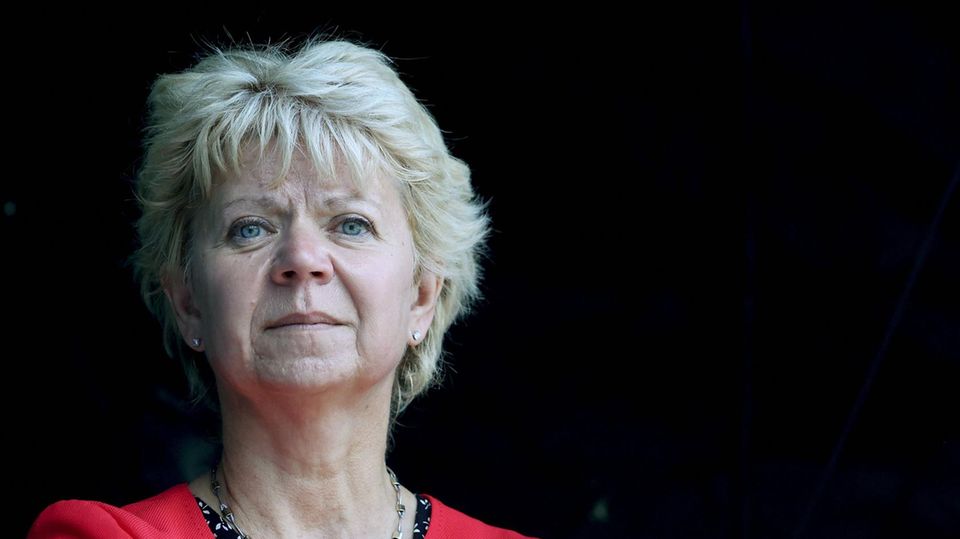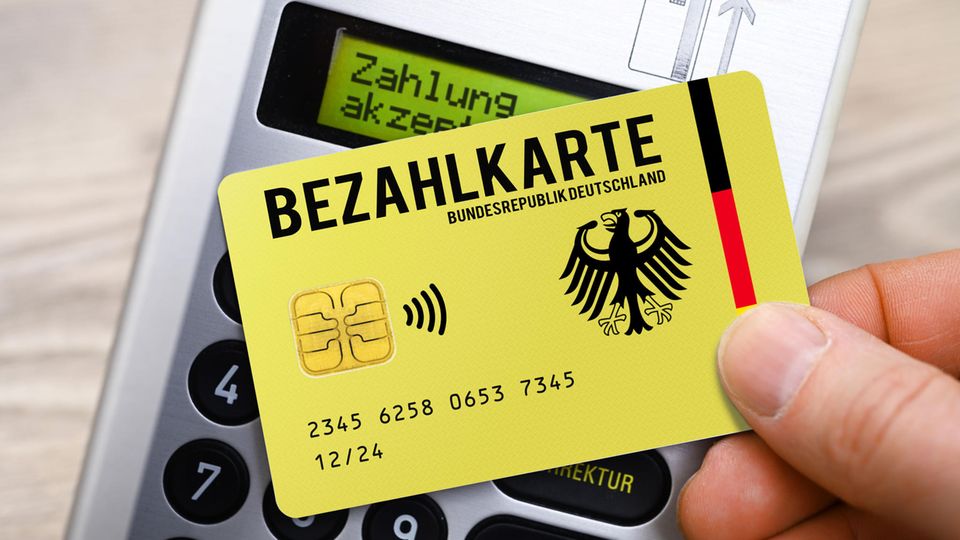Payment card for asylum seekers
Goodbye to firewalls? CDU approves AfD application in Dresden city council – criticism from Merz
The Dresden CDU city council group voted for an AfD motion, which contradicts the so-called firewall resolution of the federal CDU and angered its chairman Friedrich Merz
© Britta Pedersen / DPA
With votes from the CDU parliamentary group, the Dresden city council decided to introduce a payment card for asylum seekers – thereby supporting an AfD initiative. The CDU admits a failure.
Clear crack in the much-vaunted firewall: The city council of the Saxon capital Dresden has approved an AfD application to introduce payment cards for asylum seekers and also received votes from the CDU parliamentary group. That comes from one Recording of Thursday evening’s city council meeting.
The decision was extremely close with 33 votes to 32. The FDP and Free Voters factions also supported the motion. Before the vote, Thomas Lehmann (CDU) said that his group supported the proposal because he feared that the introduction of a planned nationwide payment card could take a long time.
Criticism from within our own ranks
CDU parliamentary group leader Heike Ahnert explained the genesis of the case on Friday. “The CDU parliamentary group tried to bring its own motion from November last year to the vote yesterday. There was no majority for this in the city council,” she said in an interview with the German Press Agency (DPA). So only the current hour with the AfD’s motion remained, which the CDU parliamentary group had to respond to. “Yes, it would have been better if we could have discussed our proposal in the city council instead of agreeing to the AfD proposal. It would have been better if there had been a separate proposal from the middle of the city council. This must be the common claim of the parliamentary groups “We will be the center of the future. And that’s how we will handle it,” added Ahnert.
The Dresden CDU district leader Markus Reichel criticizes the approach of his party’s city council group: “Such a payment card has been called for by the CDU for some time at the federal, state and local levels and its introduction is being accelerated […] Against this background, it is incomprehensible to me why such a motion was not submitted by the CDU parliamentary group in the Dresden city council. There would have been no need for approval of the AfD application,” he says in one statementout of.
Last year, CDU leader Friedrich Merz made it clear after a debate about the AfD’s “firewall” in local politics: “There will be no cooperation between the CDU and the AfD at the local level either.” On Friday he sharply criticized the behavior of his party friends in Dresden. “The decision is correct in substance, unacceptable in procedure,” he said in Berlin. “That was a mistake. And we will talk to those affected about everything else.” The CDU has always said that it will not agree to AfD proposals in any parliament. Saxony’s Prime Minister Michael Kretschmer (CDU) had also repeatedly taken a clear stance against the AfD and strictly refused to work with it.
Crumbling of the firewall affects credibility
“Firewalls have a high symbolic value because they mean distancing themselves from the AfD. This is particularly important for the CDU in order not to get the reputation of cooperating with the AfD,” said Dresden political scientist Hans Vorländer to the DPA. So far, that has also been the federal and state political party line. Events like the decision in the Dresden city council always have a repercussion on credibility.

Vorländer: “If AfD and Free Voters gain strength at the local level, city parliaments or district councils will also have to reorient themselves in order to achieve majorities capable of making decisions. It cannot be completely ruled out that they will also vote with the AfD in one way or another But the difference is that the application in the Dresden case came from the AfD itself.” In general, the CDU has so far stuck to its line of not agreeing to AfD proposals, even in the cities. “A border has been crossed in Dresden. This is a new dimension.”
The AfD parliamentary group’s proposal stipulates that, in a model experiment, a payment card will replace the current cash payments for asylum seekers. The card should only be used to make payments within Germany, and there should also be further restrictions on use.
“Common cause with the Nazis”
The federal government has made a cabinet decision on a payment card for refugees. However, it is unclear when the nationwide regulation will be decided in the Bundestag. In some federal states, individual municipalities have already moved ahead and introduced their own payment cards.
Ahnert recalled that there were unanimous decisions by the Prime Minister’s Conference with the Federal Government on the introduction of the payment card. “What was written down and decided upon is nothing other than this cross-party agreement. Cities and districts are directly responsible for the implementation of this project. That’s why it is also right that a city council discusses this important issue.”
Left faction leader André Schollbach expressed his anger via Instagram: “The CDU has now dropped all inhibitions and is openly joining forces with the Nazis.”
The Saxon Office for the Protection of the Constitution classifies the state association of the AfD as “certainly right-wing extremist”. In addition to the CDU, AfD, FDP and Free Voters, the Dresden City Council also includes the SPD, the Greens, the Left and the dissident faction. With around 570,000 inhabitants, Dresden is the second largest city in Saxony after Leipzig and ahead of Chemnitz.
Sources: Session stream, CDU Dresden, Office for the Protection of the Constitution in Saxonywith DPA


